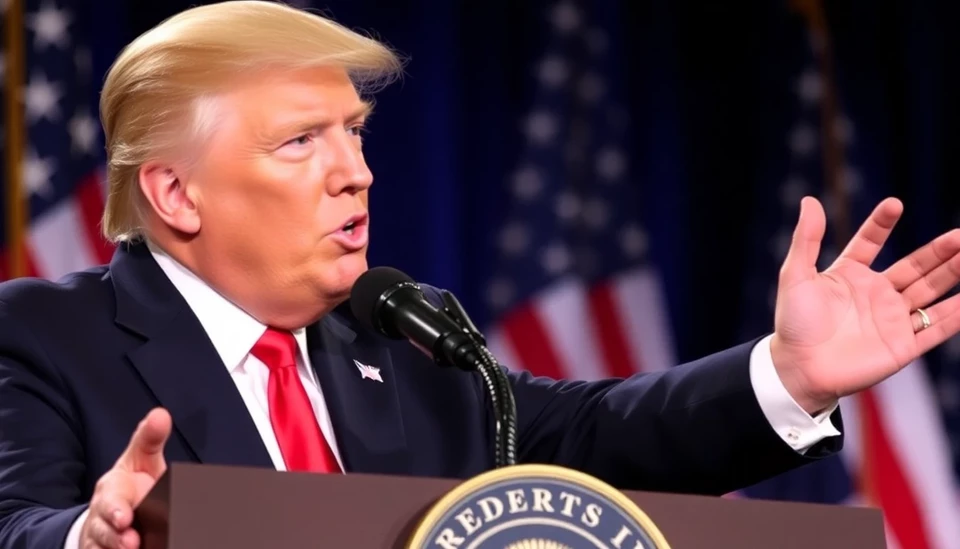
In a climate of growing internal strife within the Republican Party, allies of former President Donald Trump are increasingly anxious about the potential jeopardy surrounding their longstanding pledges for tax cuts. As the GOP grapples with infighting and factional disputes, these key political players are worried that their financial promises could be undermined, leading to broader implications for the party's agenda and its electoral prospects.
The tensions come to a head as party leaders and factions, including the hard-right Freedom Caucus and moderates, clash on various legislative initiatives, including the crucial issues of government funding and infrastructure investments. This discord raises questions about whether unified support for tax cuts can be maintained, which has been a significant aspect of the Republican platform. With the 2024 presidential election on the horizon, the stakes are higher than ever as potential GOP candidates position themselves for what they hope will be a favorable climate for election campaigns.
Several key Trump allies have voiced their worries that ongoing discontent and rivalry within the party could dilute their ability to deliver on tax cut promises. This uncertainty is exacerbated as the GOP struggles to find common ground, with some factions pushing for aggressive spending cuts and others advocating for more moderate approaches. The lack of consensus complicates efforts to present a united front, particularly when addressing issues that resonate with voters, such as economic growth and job creation.
In particular, Trump supporters are observing with concern how ongoing negotiations around budgetary matters might affect the party’s ability to keep its commitment to tax reform. The potential for a fractured GOP to derail tax cut pledges is not just a political headache; it also poses a pronounced risk for the party as it seeks to energize its base and attract undecided voters ahead of the critical 2024 elections.
As the political landscape continues to evolve, Trump's allies are increasingly calling for reconciliation among party factions. They emphasize the need for collaboration to produce tangible results that align with Republican values, including tax relief for individuals and businesses. The ongoing disarray serves as a reminder of the delicate balance within the GOP and the precarious nature of its legislative priorities.
Amidst these challenges, some Republican strategists are urging party members to focus on the positive aspects of potential tax cuts and their implications for the economy, rather than allowing internal disputes to dominate conversations. The message is clear: if the GOP hopes to successfully convey its economic vision, it must first navigate its internal divisions and present a cohesive strategy moving forward.
The coming months will be critical as the GOP works to solidify its approach to tax policy and other significant issues, all while contending with ongoing infighting. The focus remains on uniting the party's factions to harness the power of tax cuts as a central pillar of its platform, critical for garnering support among voters who desire economic stability and growth.
As 2024 approaches, the path ahead remains uncertain, with Trump allies urging their colleagues to prioritize unity over division. The stakes are high, and the ability to navigate these tumultuous political waters could very well dictate the party's success in the upcoming elections.
#Trump #GOP #TaxCuts #RepublicanParty #Elections2024 #PoliticalStrategy
Author: Daniel Foster




